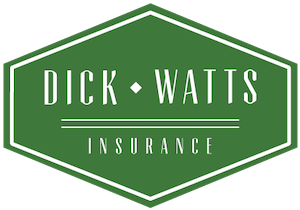What Does Landlord Insurance Cover?

What does Landlord Insurance Cover :
Landlord Insurance is a policy for someone who rents out a home they own. This type of insurance typically includes two different types of coverage: property and liability protection. Both coverages are intended to protect you

Landlord Insurance
What does landlord Insurance cover ?
The property protection in a landlord insurance policy typically helps cover physical property related to the home you are renting out. This may include the dwelling itself and equipment you kep onsite to help maintain: Coverage may include :
- Dwelling This coverage helps pay to repair your rented home, condo or apartment if it is damaged by fire, lightning, wind, hail or other covered cause of loss. Ask about the Named Peril Actual Cash Value policy
- Other Structures for an additional premium your policy may help pay to repair for damaged to detached structures on your rental property, such as a detached garage or fence, if they are damaged by a covered loss.
- Personal Property used to service the rental. If you leave a lawn mower or snow blower onsite to maintain your rental property, landlord insurance may help cover this equipment if damaged for an additional insurance premium. All of the above coverages are subject to deductibles and limits stated on your specific Landlord Insurance policy. Your deductible is the amount you will pay for a covered loss before your landlord insurance kicks in. A limit is the maximum amount your policy will pay after a covered loss. Each coverage typically has its own, separate deductible and limit. You may be able to set your own deductible and limit amounts for these insurance coverages.
Landlord Liability Insurance Protection
The liability portion of a landlord insurance policy may help you pay for another person’s medical bills or your legal expenses if someone else is injured on your rental property and you are found responsible. (Legally Liable) For example, if your tenant falls down stairs at your rental property and a court determines that you failed to maintain the stairs and or railing, you could be held responsible for your tenant’s medical legal and other costs. In that case your landlord liability insurance coverage may help pay for those expenses up to your policy’s limits
Extra Landlord Insurance Coverages to Consider
Depending on the neighborhood, geographic area or condition of your rental you may want to consider adding on some optional coverages to your landlord policy. These Extra coverages may include the following
- Vandalism You may want optional coverage (for an additional premium) to help you pay to repair vandalism damage. If your property is vandalized, that type of coverage is not covered y a landlord policy unless you purchased vandalism coverage. (broken glass is specifically excluded)
- Burglary While a standard landlord insurance policy may help pay to repair your home if it is damaged in a break in, it typically will not pay to replace stolen items. Optional coverage may be available for theft of items you keep on the property to maintain the property.
- Rental Property Under Construction (for an additional premium) Are you gutting or renovation your rental or investment property? You may be able to purchase additional coverage to help protect the structure until it is ready to be occupied.
Talk with your local independent insurance agent Dick Watts Insurance to learn what optional coverages may be available and for help understanding how they may help protect you as landlord.
Should I get insurance on my wholetail real estate investment property?
WHAT IS USUALLY NOT COVERED BY LANDLORD INSURANCE?
Whiled landlord insurance may help pay for expenses stemming from a number of sudden and accidental losses, you will likely find that some things are excluded from the policy’s coverage. A landlord insurance policy may not cover:
- Maintenance and equipment breakdowns If the furnace or dishwasher in your rental property breaks down, you will likely have to pay out of pocket any necessary repairs or replacement.
- Property you share. If you live on the property and rent out a room to a tenant you are not eligible for a landlord insurance policy. Landlord policies are designed for “non-owner-occupied” property.
- Tenant’s Belongings. Landlord Insurance generally does not cover your tenant’s personal possessions. For that protection your tenants will need to purchase their own renters insurance policy.
Consider the following insurance coverages
What is Commercial Business Insurance?
Homeowners Insurance, Renters Insurance, Landlord Insurance
